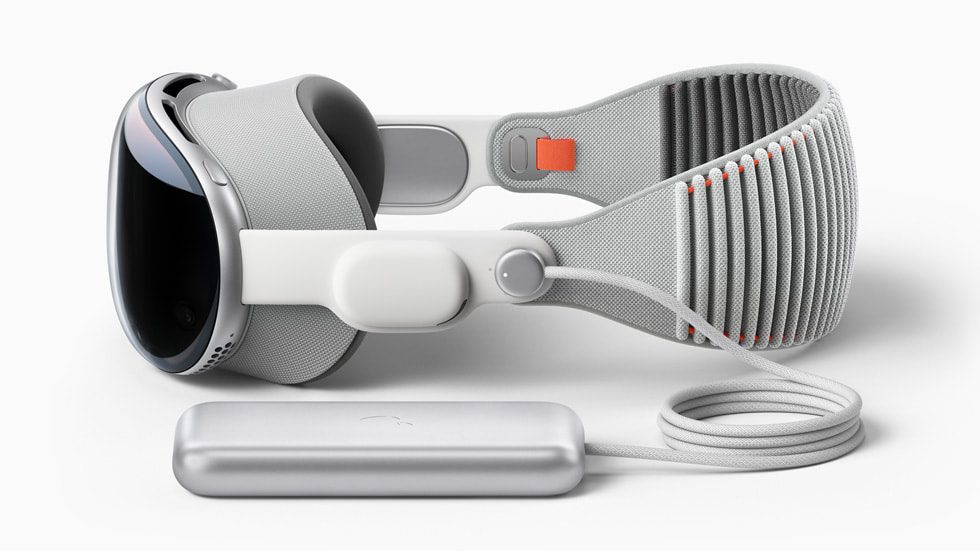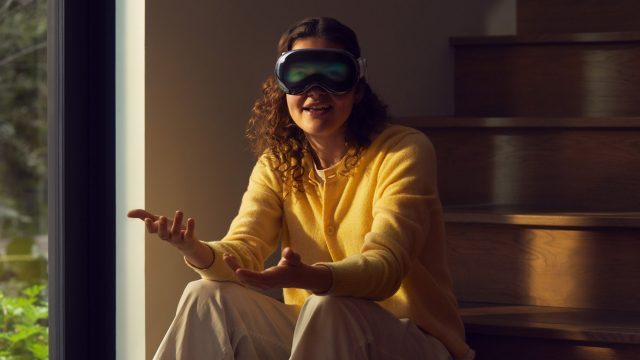Apple Vision Pro is about to set a lot of expectations in the industry of what’s ‘right’ and ‘wrong’ about mixed reality, something the fruit company prefers to call spatial computing. Oculus founder Palmer Luckey weighed in on his thoughts, and coming from one of the main figures who kicked off the VR revolution of today, it means something.
Speaking to Peter Diamandis in a nearly two hour-long podcast, Luckey delved into many areas of his work over the years, touching on the role at his defense company Anduril, his role in kickstarting the modern era of VR, and basically everything under the Sun that the tech entrepreneur is doing, or thinks about when it comes to augmented and virtual reality.
Undoubtedly the hottest of hot button issues is whether Apple is doing mixed reality ‘right’ as a newcomer to the space. Luckey is mostly positive about Vision Pro, saying it’s patently Apple.
“I think there were things that I would do differently if I were Apple,” Luckey tells Diamandis. “They did basically everything right—they didn’t do anything terrible. I mean, I think Apple is going after the exact right segment of the market that Apple should be going after.”
Luckey maintains that if Apple went after the low end of the market, it would be “a mistake,” saying the Cupertino tech giant is taking “the exact approach that I had always wanted Apple to take, and really the approach that Oculus had been taking in the early years.”
Apple is admittedly going at XR with little regard for affordability, but that’s not the sticking point you might think it would be. To him, the $3,500 headset packs the best components for the premium segment, including “the highest possible resolution, the highest quality possible displays, the best possible ergonomics.”
In fact, Apple’s first-gen device shouldn’t be about affordability at this point, Luckey says. It’s about “inspiring lust in a much larger group of people, who, as I dreamed all those years ago, see VR as something they desperately want before it becomes something they can afford.”


In the world of component configurations, there’s very little that catches Luckey off guard, although Vision Pro’s tethered battery ‘puck’ was choice that surprised the Oculus founder a little bit. When it comes to offloading weight from the user’s head, Luckey says shipping a battery puck was the “right way to do things.”
“I was a big advocate of [external pucks] in Oculus, but unfortunately it was a battle that I lost in my waning years, and [Oculus] went all in on putting all batteries, all the processing in actual headset itself. And not just in the headset, but in the front of the headset itself, which hugely increases the weight of the front of the device, the asymmetric torque load… it’s not a good decision.”
One direction Apple has going that Luckey isn’t a fan of: controllers, or rather, the lack thereof. Vision Pro is set to ship without any sort of VR motion controller, which means developers will need to target hand and eye-tracking as the primary input methods.
“It’s no secret that I’m a big fan of VR input, and I think that’s probably one of the things I would have done differently than Apple. On the other hand, they have a plan for VR input that goes beyond just the finger [click] inputs. They’re taking a focused marketing approach, but I think they have a broader vision for the future than everything just being eyes and fingers.”
Luckey supports the company’s decision to split the headset into a puck and head-worn device not only for Vision Pro in the near term, but also for future iterations of the device, which will likely need more batteries, processing, and antennas. Setting those expectations now of a split configuration could help Apple move lighter and thinner on head-worn components, and never even deal with the problems of balancing the girth and weight seen in the all-in-one, standalone headsets of today.
In the end, whether the average person will wear such things in the future will ultimately come down to clever marketing, Luckey maintains, as it’s entirely possible to slim down to thinner form factors, but devices may not be nearly as functional at sizes smaller than “chunky sunglasses”. To Luckey, companies like Apple have their work cut out for them when it comes to normalizing these AR/VR headsets of the near future, and Apple will most definitely be seeding their devices on the heads of “the right celebrities, the right influencers” in the meantime.
You can check out the full 15-minute clip where Luckey talks about his thoughts on Apple Vision Pro below:


